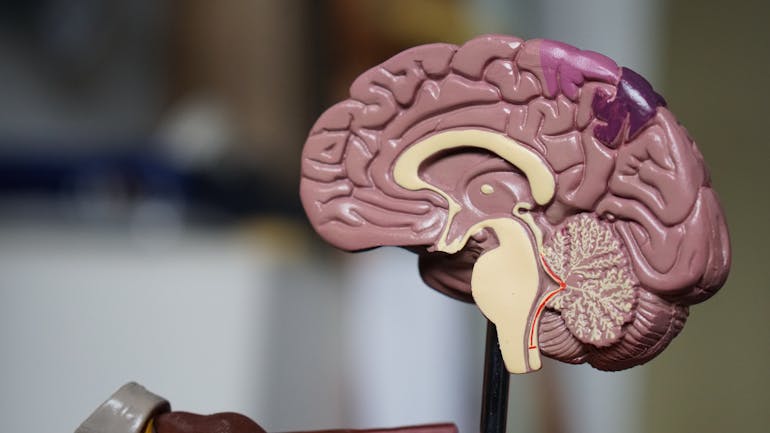Why are Medicinal Mushrooms so popular?
Reviewed and fact-checked by Giulia Guerrini, Superintendent Pharmacist. Read our editorial policy to see how we create informative, accurate content.
Mushrooms belong to the fungi kingdom, there are thousands of types of mushroom currently known and many of them have a variety of health and therapeutic benefits. There are around 250+ that have superior health benefits which we classify as medicinal mushrooms- having anti-inflammatory, cardiovascular, antimicrobial, and immune supporting benefits.
Medicinal mushrooms offer many benefits for overall health. We share around 30% of our DNA with fungi, and they are a very bioavailable medicine to us. Cultures around the world have long used them to promote health and modern day scientific research is now beginning to back up their healing properties. Over the last few years these functional mushrooms have become more popular in the west, they are more widely accessible and have many benefits for our busy, modern lifestyles.
Medicinal mushrooms are composed of three main parts: mycelium, the fruiting body, and the spores. The mycelium spreads out in a network under or on the soil, and it helps the mushroom to absorb valuable nutrients from its surroundings. The fruiting body is the part of a mushroom that commonly grows above ground, while the spores act as seeds and help to spread new life. Depending on the exact species, all three parts of medicinal mushrooms can be used for their healing and rejuvenating properties.
Mushrooms contain antioxidants, polysaccharides and polyphenols which help to support the immune system. Many mushrooms contain key nutrients like vitamin D, iron, selenium and vitamin C which are important for the body and overall health.
All medicinal mushrooms contain immune supporting polysaccharides including beta-glucans. They are immune-modulators, so suppress or stimulate as needed, and support many key components of the immune system, from increasing protective immune cells, to supporting effective immune function. Each medicinal mushroom has its own unique set of compounds to support health and many mushrooms also produce strong antibacterial, antiviral and antifungal compounds.
Many mushrooms work as adaptogens, meaning they help the body to adapt to both internal and external stressors, bringing balance and regulating many systems within the body. Cordyceps and Reishi are two excellent adaptogenic mushrooms which help to balance, restore and protect the body, supporting hormonal health, energy levels, immunity and more.
Some of the most valuable nutrients that mushrooms contain are antioxidants including selenium, ergothioneine and glutathione – our master antioxidant and cell defender. These antioxidant compounds are very protective against free radical damage, decreasing the amount of oxidative stress in our bodies and damage done to our cells and DNA.
Some mushrooms also offer benefits for cognitive health, research found that people who regularly ate small amounts of mushrooms in their diets had a much lower risk of mild cognitive impairment which can lead to neurodegenerative conditions (1). Compounds found in Lion’s Mane mushroom including hericenones and erinacines appear to contribute to the growth of brain cells and cognitive functioning, supporting focus, clarity of thought and offering support for long term brain health.
Meet the Mushrooms:
Reishi
Reishi has a long history of use in ancient China for reducing stress, aiding relaxation and calming the mind. Reishi mushrooms (and particularly reishi spores (LINK)) are rich in triterpenes which are naturally calming, anti-inflammatory and a natural anti-histamine valuable for allergies and hay fever.
Cordyceps
Cordyceps like Reishi is an adaptogen, and studies have shown participants were better able to withstand stress when they took cordyceps compared to when they didn’t (2). It contains compounds that are beneficial for the lungs and energy production, and is a great choice for a natural lift, or pre-workout to support sports performance.
Lions Mane
Lions Mane has cognitive benefits and can support the nervous system and overall brain functioning. It stimulates production of nerve growth factor (NGF) which helps to maintain the neurons, which are the brain cells responsible for helping us to process and transmit information, supporting learning and memory, as well as optimizing neurogenesis; the creation and growth of new brain cells (3).
Chaga
Chaga is a prized tonic mushroom, it contains high amounts of the antioxidants including antioxidant enzyme superoxide dismutase (SOD) which neutralizes damage done by free radicals which we face in our environment, and from our diet and lifestyle choices on a daily basis.
Shiitake
Shiitake is considered the "elixir of life" by Japanese elders. It has cardiovascular and immune benefits and is useful for digestive conditions due to its anti-viral, antibacterial and antifungal properties.
Maitake
Maitake has been shown to have beneficial effects on the immune system (4), and potent antiviral action. It also appears to show benefits for supporting blood sugar balance.
Mushrooms contain potentially hundreds of compounds with medicinal benefits, and more are still being discovered each year. The fungi kingdom is so large, and in reality we have only scratched the surface in discovering them and their potential benefits. Regularly consuming mushrooms – through your diet, and via Mushrooms4Life products – is a great way to keep yourself healthy. The nutritional benefits of mushrooms cannot be understated and consuming a wide variety of ‘shrooms ensures you get a broader spectrum of beneficial compounds.
References:
- Journal of Alzheimer's Disease - The Association between Mushroom Consumption and Mild Cognitive Impairment: A Community-Based Cross-Sectional Study in Singapore
- PubMed Central (PMC) - Cordyceps militaris improves tolerance to high intensity exercise after acute and chronic supplementation
- PubMed - Neurotrophic properties of the Lion's mane medicinal mushroom, Hericium erinaceus (Higher Basidiomycetes) from Malaysia
- PubMed Central (PMC) - Immune-enhancing effects of Maitake (Grifola frondosa) and Shiitake (Lentinula edodes) extracts

